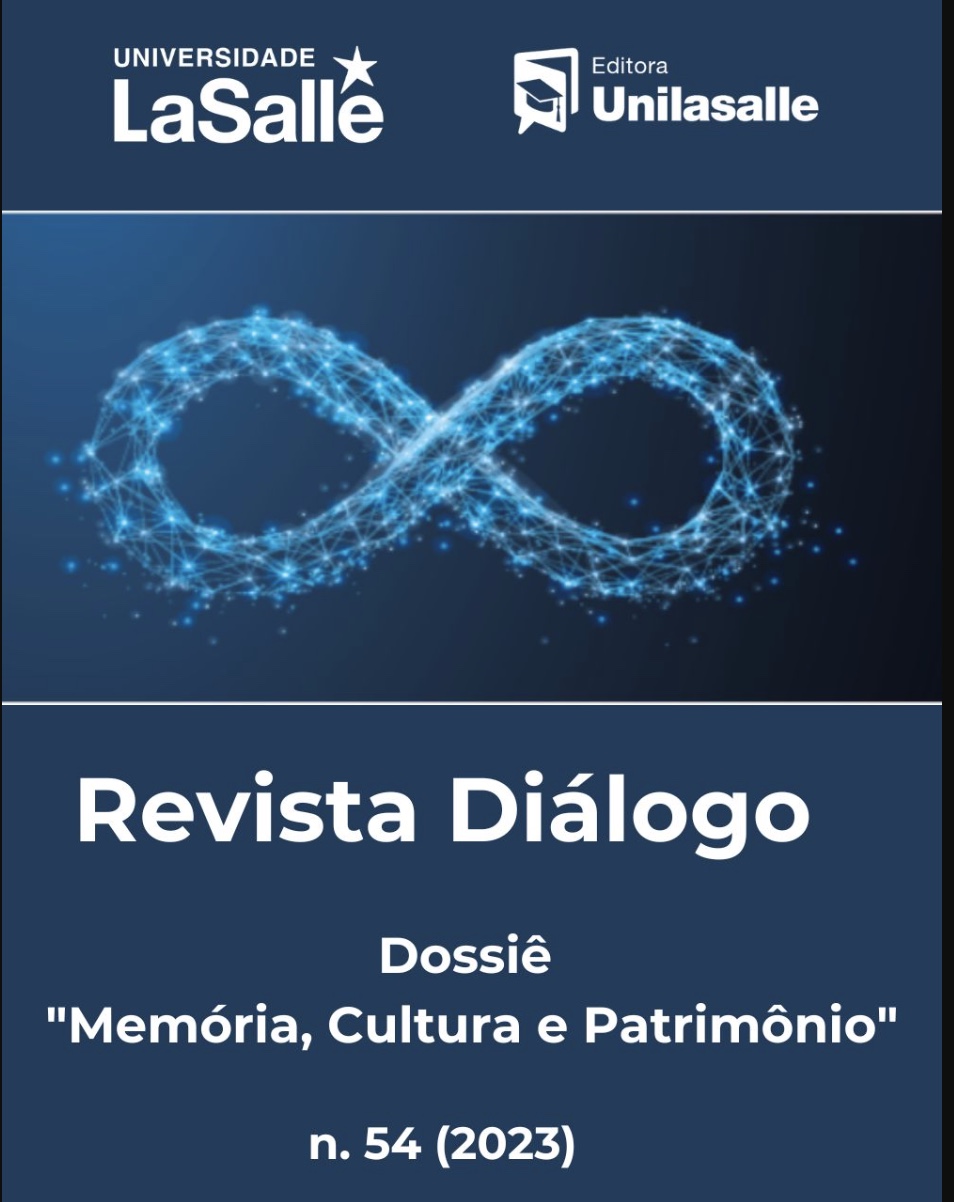Programa terapêutico VIVA na V/IDA Mulheres
ESCREVIVÊNCIAS, BENEFÍCIOS E REFLEXÕES
DOI:
https://doi.org/10.18316/dilogo.vi54.11447Keywords:
programa terapêutico, Prática Integrativa, Mulher, AutocuidadoAbstract
This article brings as an investigative object the authorial therapeutic program VIVA na V/IDA Mulheres (Live in Life, Women) and the Integrative Practices of Health Care (PICS). This is a bibliographic review study presented as a final requirement of the lato sensu postgraduate course in Integrative Health Care Practices (PICS) of an educational network, reference in Brazil. This concern has been heightened for more than 20 years due to the studies on Gender, Education, Religion and Health and for 10 years I have been deepening the look at the context of women and their various integrative practices in health care. From this path, I created a Therapeutic Program called: VIVA na V/IDA Mulheres (Live in Life, Women). In this sense, we start with the following investigative question: What are the experiences and benefits that the Viva na V/ida Therapeutic Program provides to women? The objective of this article is to analyze and reflect on the experiences and benefits that the VIVA na V/IDA Therapeutic Program provides to women, based on a literature review. We conclude that integrative health care practices, taking into account an integrative approach in the therapeutic process, by involving the integrality of the human being associated with its totality, brings benefits to women who have emotional vulnerability as they have challenges in different contexts of life. The effectiveness of this Therapeutic Program is pointed out because it contains several approaches in a quick and practical way, taking into account the range of techniques used and their completeness and temporality, mainly in welcoming and self-care so that women can exercise self-management of their emotions.
References
ANDRADE, L. Q. Terapias Expressivas. São Paulo: Vetor, 2000.
BORJA-SANTOS, Cecília. Abordagem Centrada na Pessoa – Relação Terapêutica e Processo de Mudança. Revista do Serviço de Psiquiatria do Hospital Fernando Fonseca. 2004, p 18-23. Disponível em: https://revistas.rcaap.pt/psilogos/article/view/6071. Acesso em: 25 ago. 2021.
FIORINDO, P. P. Arteterapia e Psicologia Analítica. Bahia, 2014. Disponível em: http://revistapandorabrasil.com/revista_pandora/arteterapia%20 _61/priscila.pdf. Acesso em: 22 nov. 2020.
FRANKL, Viktor. Em Busca de Sentido. Tradução Walter O. Schlupp, Carlos C Aveline. São Leopoldo/RS: Sinodal, 1985.
FRANKL, Viktor. Um Sentido Para a Vida. Psicoterapia e Humanismo. Tradução Victor Hugo S. Lapenta. 14. ed. Aparecida: Ideias e Letras, 2005.
HELLINGER, B. A. Viagens Interiores. Patos de Minas, MG: Atman, 2008.
JUNG, Carl Gustav. A Natureza da Psique. Petrópolis, RJ: Vozes, 1991.
JUNG, Carl Gustav. Mysterium Coniunctionis: Rex e Regina; Adão e Eva; A Conjunção. 3. ed. Petrópolis, RJ: Vozes, 2012.
PALUDO, Simone dos Santos; KOLLER, Sílvia Helena. Psicologia Positiva: uma nova abordagem para antigas questões. Paidéia, 2007, v. 17, n. 36, p. 9-20. Disponível em www.scielo.br/paidei. Acesso em: 23 ago. 2021.
PHILIPPINI, A. A. Transdisciplinaridade e arteterapia. In: ORNAZZANO, G. (org.). Questões de arteterapia. Passo Fundo, RS: UPF, 2004, p. 11-17.
ROGERS, Carl R. Psicoterapia e consulta psicológica. Tradutor: M. Ferreira. – 2. ed. – São Paulo: Martins Fontes, 1979. (originalmente publicado em 1942).
ROGERS, Carl R. Tornar-se pessoa. Tradutor: M. Ferreira e A. Lampareli. – 5. ed. – São Paulo: Martins Fontes, 1997. (originalmente publicado em 1961).
ROGERS, Carl Ransom; WOOD, John Keith (orgs.). Abordagem centrada na pessoa. – 5. ed. – Vitória: EDUFES, 2010.
SCOTT, Joan Wallach. Gênero: uma categoria útil de análise histórica. Educação & Realidade. Porto Alegre, vol. 20, nº 2, jul./dez. 1995.
SCORSOLINI-COMIN, Fábio. Por uma nova compreensão do conceito de bem- estar: Martin Seligman e a psicologia positiva. Paidéia, set.-dez. 2012, vol. 22, n. 53, 433-435. Disponível em: http://dx.doi.org/10.1590/1982-43272253201315. Acesso em: 23 ago. 2021.
SELIGMAN, Martin. E. P. Florescer: uma nova compreensão sobre a natureza da felicidade e do bem-estar. Trad. Cristina Paixão Lopes. Rio de Janeiro: Objetiva, 2011.
SILVA, M. L. O. R.; ATAHIDES, P.; HUBER, L.; SOUZA, H. I. S. A arteterapia como possibilidade de reencontro de si na relação com outros. Ciência (in) cena, v. 1. n. 4. Salvador, 2017. Disponível em http://revistaadmmade.estacio.br/index.php/cienciaincenabahia/article/viewFile/ 3668/PDFarteterapia. Acesso em: 22 nov. 2020.
Downloads
Published
Issue
Section
License
Authors who submit their manuscripts to be published in this journal agree to the following terms:- Authors retain copyright and grant the journal right of first publication with the work simultaneously licensed under the Creative Commons Attribution License that allows the sharing of work and recognition of its initial publication in this journal.
- By virtue of the articles appearing in this open access journal, articles are free to use, with proper attribution, in educational and non-commercial.


